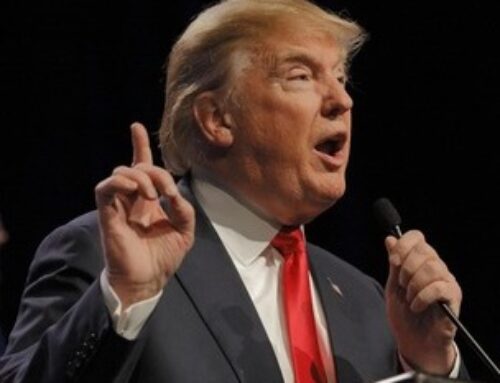
By itself, the first idea is unassailable; however, when it is combined with the second, it becomes foolish and harmful. Here’s why: having a right to opinions does not guarantee that the opinions will be reasonable or in line with the facts. To find out whether they are, we need to examine the opinions critically by ourselves or in discussions with other people. Yet the second idea prevents both approaches.
We could, of course, reason that if we have a right to our opinions, other people must have a right to theirs, so when the opinions clash, we should resolve the issue by deciding which is better supported by the facts. However, the requirement of maintaining self-esteem forbids that approach, for it could prove the other person’s opinion to be superior, and thus undermine our self-esteem.
So how do a great many people deal with this dilemma when someone asks them to explain or support their opinion? They simply ignore the question and restate their opinion in the same or different ways over and over. The result is that an opportunity to clarify the issue and perhaps find common ground is squandered and both parties leave the discussion feeling a sense of futility.
A clear example of such behavior recently occurred on the Tucker Carlson show.
Carlson was interviewing a spokesperson for the American Center for Progress and began by playing a TV ad being used by the Democratic Party against Virginia gubernatorial candidate Ed Gillespie.
The ad shows a man in a truck with a confederate flag on the tailgate and an Ed Gillespie sticker on the bumper driving down the street and making young children, apparently immigrants, frantically run away from him. Finally, the children go down a dead-end alley, and he continues to point his truck at them. The scene then shifts to a young child waking up terrified from a dream, and his father coming into the room and hugging him.
Carlson then commented that he found the video offensive because “it portrays supporters of Gillespie as violent racists [and it therefore constitutes] race baiting [and] pushing a race war.”
He then asked the guest whether she agreed.
She said the ad was “just putting a mirror up to the campaign Gillespie is running.” And “[the campaign includes] a lot of race-baiting.”
Carlson responded, “Give me one example of his race-baiting.”
The guest answered that Gillespie is putting confederate statues “at the center of his campaign,” and “running a lot of ads suggesting that all immigrants are connected to [the violent street gang] MS-13.”
Carlson then asked, “Where has he said that? I’ve heard him say that MS-13 preys upon immigrants.”
Guest: “His ads are making people fearful [and] bringing out the worst in people . . . he’s willing to say whatever it takes to get votes.”
Carlson summarized the ad and asked, again, “Have you ever seen such an awful ad?”
The guest responded that we are now living in an era where people are “coming forward saying you could just be dog-whistled, or [making] overt racist statements.” She then added that the video is “based on an actual event.”
Carlson: “What did Ed Gillespie have to do with that event?”
Guest: “I don’t know what he had to do with the event necessarily [sic]. . . but he’s creating a racist environment.” [Then she added] “He’s never disavowed Trump’s statements about the Charlotte riots saying that there are good people on both sides.”
Carlson then asked why it was Gillespie’s responsibility to disavow something somebody else said?
The guest replied, “Well, [Gillespie] did speak of the Confederacy as ‘our heritage.’”
Carlson pointed out that, like it or not, the Confederacy is part of Virginia’s heritage.
The guest then asserted that violent rhetoric toward students of color is increasing.
Carlson asked whether that rhetoric was Gillespie’s?
The guest said no but continued to hold Gillespie responsible for such rhetoric for the rest of the interview.
This exchange was frustrating to watch and is no less so to read. Granted the guest was in a difficult position. She no doubt believed the ad went too far—what sensible person wouldn’t?–but she couldn’t bring herself to say so because it was linked to her party and she probably believed that agreeing with Carlson would have caused the party to lose face. Maybe it would have among some people, but surely not as much as persisting in defending the indefensible.
Suppose, instead, that the guest said at the outset, “I agree that the commercial goes too far. But I also believe that certain of Gillespie’s policies cause fear in the minority community, and I wish his Democratic opponent had chosen a more appropriate way to make that point.” Had she said that, Carlson would probably have moved to another topic, perhaps the policies she alluded to, and a meaningful discussion could have ensued.
Examples of such missed opportunities are legion. Consider the discussions of Colin Kaepernick and other football players refusing to stand for the national anthem, the shouting down of speakers that activists don’t want to hear, the taking down of statues some people believe are racist, the sanctuary city phenomenon, the administration’s health care proposal, the plan to reform the tax code, and on and on.
What would it take to seize these opportunities, engage in honest discussion that examines issues carefully, ventilates negative emotions, and achieves mutual understanding and perhaps a measure of agreement? The answer is quite simple. Media talk shows should invite only guests who are willing not merely to express their views but also to defend them with evidence when asked. When a guest shows unwillingness (or inability) to meet this standard, he or she should be permanently dropped from the guest list.
This action by the media would show that they are truly interested in overcoming divisiveness and not just deploring it.
© 2017 by Vincent Ryan Ruggiero. All rights reserved


